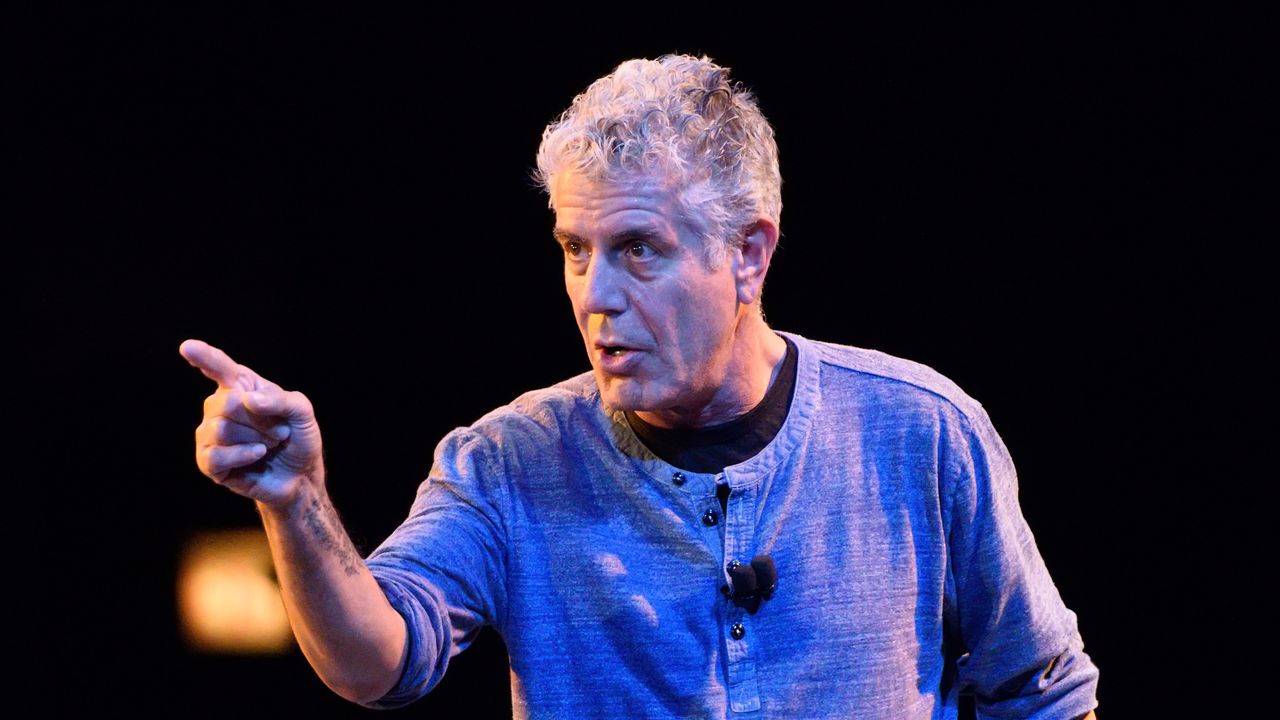We could go on but the ickiness of Tony really comes down to one thing: the Bourdain Entertainment Industrial Complex is one of the more hollow and shameless endeavors of my lifetime. The speed with which biographies and documentaries, authorized and otherwise, popped up in the wake of his suicide in 2018 was shocking, even if it shouldn’t have been. For millions of viewers and readers across the globe, Bourdain’s death felt like a gargantuan loss. But for more than a few folks in publishing and Hollywood, it was money too tempting to leave on the table.
It’s pertinent to note that another key component of Bourdain’s appeal was his candor. This is a guy whose career blew up not because he ran the best restaurant in New York City (Les Halles was a neighborhood spot, delightfully mid as all great neighborhood spots are) but because he wrote an autobiography. There’s no take on his life that’s going to be more definitive than the one he gave us, no matter what books like Bourdain: The Definitive Oral Biography and Down and Out in Paradise: The Life of Anthony Bourdain try to accomplish. He poured himself out for us on the page and then spent the better part of two decades in front of a camera talking about his struggles with addiction, fucking up, trying to be a good dad—things most of us would be terrified to share with our loved ones, much less millions of strangers across the globe. He wrote a second autobiography. He fell in love, and filmed an episode of his show about it. When someone gives that much of themselves I’m inclined to say it’s fucking gross to try and scrape more from their grave.
There’s no product of the Bourdain Entertainment Industrial Complex more revolting than documentarian Morgan Neville’s 2021 Roadrunner: A Film About Anthony Bourdain. Most of the prerelease discourse around Neville’s film concerned his use of AI software to replicate Bourdain’s voice for a few pieces of narration and the movie’s stoking of speculation and gossip regarding the timing of Bourdain’s passing and some tabloid headlines about his partner at the time. It’s low-rent behavior, sure, but in the years since the film’s release, what’s personally stuck with me is something Neville said about why he pursued the project to begin with: “I had questions,” he told Rolling Stone at the time of the film’s release, “How does [Bourdain’s suicide] happen?”
It’s the underlying question that fuels the BEIC and, speaking as a veteran of psychiatric facilities and wellness checks, my single biggest frustration with the public’s understanding of suicide. Why did Anthony Bourdain kill himself? None of your fucking business.
No public figure is obligated to share the entirety of themselves with us. We’re incredibly lucky to have gotten as much of Bourdain as we did. Over thousands of pages and countless hours of television he gave us as definitive a biography as anyone could ever ask for. Want to know about his struggle with addiction? He wrote about it at length. Finding yourself shocked by the circumstances of his death? He talked about suicide–his potential own and that of others–constantly, with wit and compassion and fascination. Wondering which Criterion Collection blu-rays he never got around to opening (he’s just like me fr)? They were auctioned off with the rest of his estate, and the listings are still accessible.
There is no director, actor, author, or documentarian who can provide as compelling an insight into Anthony Bourdain than the man himself. We were lucky to have him. It’s a fucking shame there are people out there who seem to feel what he gave wasn’t enough.

